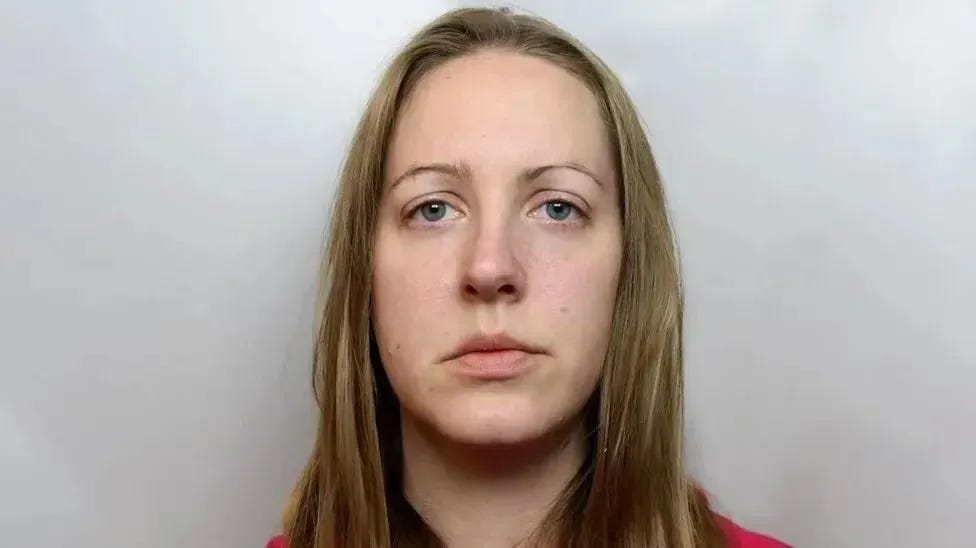Letby: the KCs’ view
Two leading criminal specialists say a further appeal would be challenging
There’s something about the Lucy Letby case that attracts conspiracy theorists. Maybe the truth — that a former neonatal nurse has now been convicted of murdering seven babies and attempting to murder seven others at the Countess of Chester Hospital between 2015 and 2016 — is just too awful to comprehend.
But what all those who have questioned …
Keep reading with a 7-day free trial
Subscribe to A Lawyer Writes to keep reading this post and get 7 days of free access to the full post archives.


